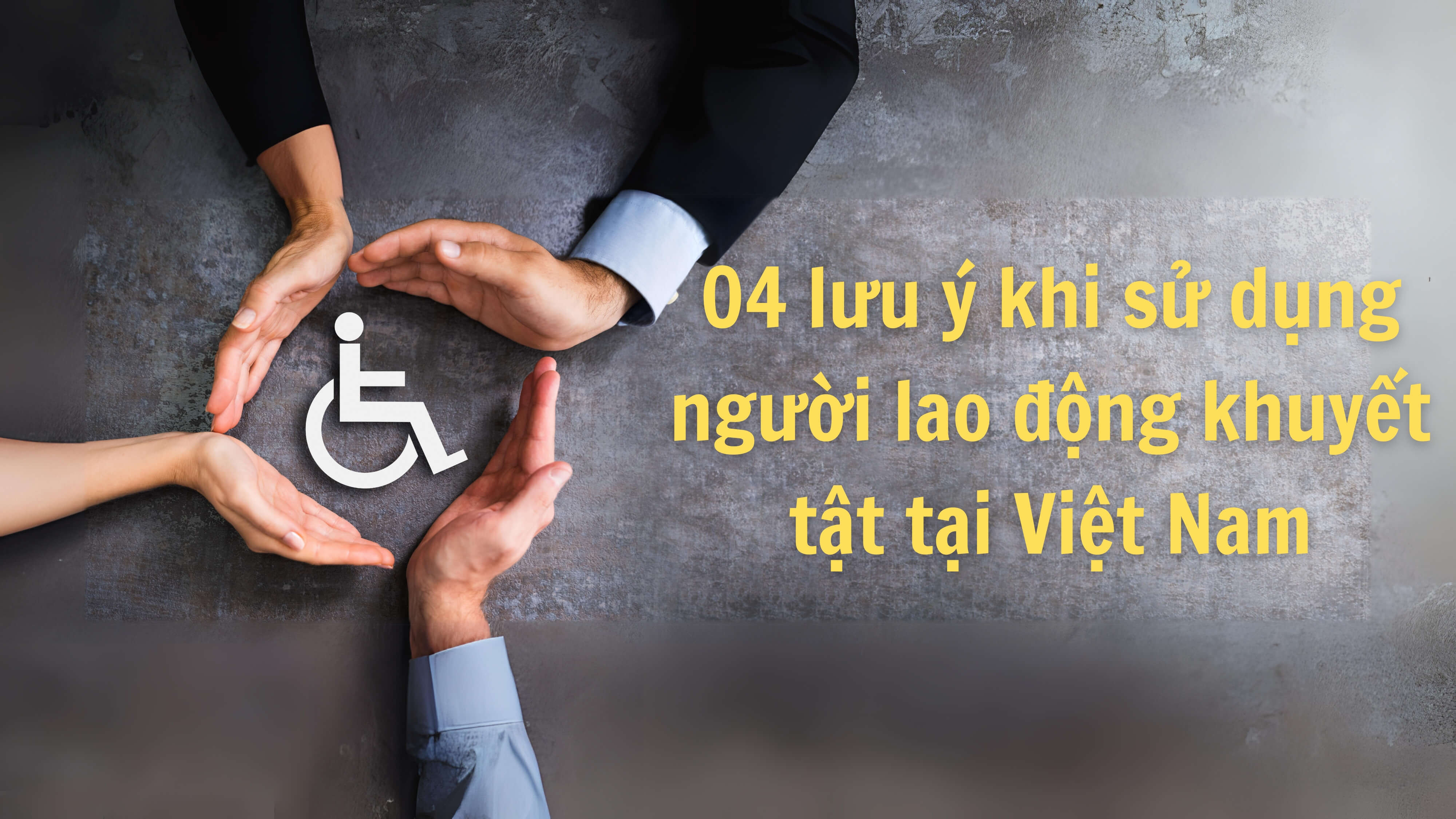 Tìm kiếm
Tìm kiếm
Chương IX Luật người khuyết tật 2010: Trách nhiệm của cơ quan nhà nước về công tác người khuyết tật
| Số hiệu: | 51/2010/QH12 | Loại văn bản: | Luật |
| Nơi ban hành: | Quốc hội | Người ký: | Nguyễn Phú Trọng |
| Ngày ban hành: | 17/06/2010 | Ngày hiệu lực: | 01/01/2011 |
| Ngày công báo: | 29/09/2010 | Số công báo: | Từ số 570 đến số 571 |
| Lĩnh vực: | Văn hóa - Xã hội | Tình trạng: | Còn hiệu lực |
TÓM TẮT VĂN BẢN
Văn bản tiếng việt
Văn bản tiếng anh
1. Chính phủ thống nhất quản lý nhà nước về công tác người khuyết tật.
2. Bộ Lao động - Thương binh và Xã hội chịu trách nhiệm trước Chính phủ thực hiện chức năng quản lý nhà nước về công tác người khuyết tật.
3. Các bộ, cơ quan ngang bộ trong phạm vi nhiệm vụ, quyền hạn của mình có trách nhiệm phối hợp với Bộ Lao động - Thương binh và Xã hội thực hiện quản lý nhà nước về công tác người khuyết tật.
4. Ủy ban nhân dân các cấp trong phạm vi nhiệm vụ, quyền hạn của mình có trách nhiệm thực hiện quản lý nhà nước về công tác người khuyết tật.
1. Bộ Lao động - Thương binh và Xã hội có trách nhiệm sau đây:
a) Xây dựng và trình cơ quan có thẩm quyền ban hành hoặc ban hành theo thẩm quyền văn bản quy phạm pháp luật, chương trình, đề án, kế hoạch về công tác người khuyết tật;
b) Chủ trì và phối hợp với các bộ, cơ quan ngang bộ và Ủy ban nhân dân tỉnh, thành phố trực thuộc trung ương tổ chức thực hiện văn bản quy phạm pháp luật về người khuyết tật; chương trình, đề án, kế hoạch về công tác người khuyết tật;
c) Xây dựng và trình Chính phủ ban hành thủ tục, hồ sơ, thời gian và quy trình giải quyết chế độ trợ cấp xã hội, chế độ mai táng phí; quy trình, thủ tục, hồ sơ tiếp nhận và điều kiện dừng nuôi dưỡng, chăm sóc người khuyết tật trong cơ sở chăm sóc người khuyết tật;
d) Xây dựng và trình Chính phủ ban hành quy định về chế độ, chính sách đối với người làm công tác người khuyết tật; cán bộ, công chức, nhân viên chăm sóc, nhân viên phục hồi chức năng, cán bộ chuyên trách của tổ chức người khuyết tật;
đ) Quy định tiêu chuẩn nghiệp vụ đối với cán bộ, công chức, nhân viên chăm sóc người khuyết tật trong cơ sở chăm sóc người khuyết tật;
e) Đào tạo nghiệp vụ cán bộ, công chức, nhân viên làm công tác người khuyết tật và nhân viên chăm sóc người khuyết tật tại gia đình, cộng đồng và trong cơ sở chăm sóc người khuyết tật;
g) Xây dựng và thực hiện chương trình nâng cao nhận thức về người khuyết tật và công tác người khuyết tật;
h) Kiểm tra, thanh tra việc thực hiện pháp luật về người khuyết tật;
i) Thực hiện hợp tác quốc tế về người khuyết tật;
k) Xây dựng và trình Thủ tướng Chính phủ phê duyệt đề án trợ giúp người khuyết tật;
l) Thực hiện khảo sát, thống kê, xây dựng và quản lý cơ sở dữ liệu và thông tin, định kỳ công bố báo cáo về người khuyết tật;
m) Quy hoạch và quản lý hệ thống cơ sở chỉnh hình, phục hồi chức năng và cơ sở chăm sóc người khuyết tật thuộc thẩm quyền.
2. Bộ Y tế có trách nhiệm sau đây:
a) Thực hiện quản lý nhà nước về chăm sóc sức khỏe người khuyết tật;
b) Chủ trì và phối hợp với Bộ Lao động - Thương binh và Xã hội quy định chi tiết hoạt động phục hồi chức năng người khuyết tật; đào tạo về phục hồi chức năng; thực hiện chương trình phòng ngừa khuyết tật; hướng dẫn thực hiện phục hồi chức năng dựa vào cộng đồng đối với người khuyết tật.
3. Bộ Giáo dục và Đào tạo có trách nhiệm sau đây:
a) Thực hiện quản lý nhà nước về giáo dục đối với người khuyết tật;
b) Quy định chuẩn quốc gia về ngôn ngữ ký hiệu và chữ nổi Braille cho người khuyết tật;
c) Thực hiện quy hoạch hệ thống các cơ sở giáo dục chuyên biệt đối với người khuyết tật và hệ thống trung tâm hỗ trợ phát triển giáo dục hòa nhập;
d) Đào tạo giáo viên, nhân viên hỗ trợ giáo dục, biên soạn chương trình, tài liệu, giáo trình và sách giáo khoa áp dụng cho người học là người khuyết tật; chỉ đạo nghiên cứu, sản xuất và cung ứng thiết bị dạy học phù hợp với từng dạng tật và mức độ khuyết tật;
đ) Chủ trì và phối hợp với Bộ Lao động - Thương binh và Xã hội, Bộ Y tế thực hiện chương trình giáo dục đặc biệt đối với trẻ em khuyết tật.
4. Bộ Văn hóa, Thể thao và Du lịch có trách nhiệm thực hiện quản lý nhà nước về công tác văn hóa, thể thao, giải trí và du lịch đối với người khuyết tật; chỉ đạo, hướng dẫn và tổ chức thực hiện các hoạt động nâng cao đời sống văn hóa, tinh thần cho người khuyết tật.
5. Bộ Xây dựng có trách nhiệm chủ trì và phối hợp với các bộ, cơ quan ngang bộ có liên quan ban hành, hướng dẫn và tổ chức thực hiện quy chuẩn kỹ thuật quốc gia về xây dựng nhà ở chung cư, trụ sở làm việc, công trình hạ tầng kỹ thuật, công trình hạ tầng xã hội bảo đảm điều kiện tiếp cận đối với người khuyết tật.
6. Bộ Giao thông vận tải có trách nhiệm chủ trì và phối hợp với các bộ, cơ quan ngang bộ có liên quan ban hành, hướng dẫn và tổ chức thực hiện quy chuẩn kỹ thuật quốc gia về kết cấu hạ tầng giao thông, các công cụ hỗ trợ và chính sách ưu tiên người khuyết tật tham gia giao thông công cộng.
7. Bộ Thông tin và Truyền thông có trách nhiệm ban hành, hướng dẫn và tổ chức thực hiện quy chuẩn kỹ thuật quốc gia về tiếp cận thông tin đối với người khuyết tật; chỉ đạo, hướng dẫn cơ quan thông tin đại chúng thực hiện tuyên truyền, phổ biến chính sách, pháp luật đối với người khuyết tật.
8. Bộ Khoa học và Công nghệ chủ trì và phối hợp với các bộ, cơ quan ngang bộ có liên quan ban hành, hướng dẫn và tổ chức thực hiện quy định khuyến khích nghiên cứu, sản xuất và ứng dụng sản phẩm hỗ trợ người khuyết tật sử dụng.
9. Bộ Tài chính bố trí ngân sách thực hiện các chính sách, chương trình, đề án, dự án trợ giúp người khuyết tật; bố trí ngân sách điều tra, khảo sát và thống kê người khuyết tật theo quy định của pháp luật về ngân sách nhà nước.
10. Bộ Kế hoạch và Đầu tư thẩm định, phê duyệt các dự án nhà nước đầu tư chăm sóc, nuôi dưỡng, chỉnh hình, phục hồi chức năng người khuyết tật; chủ trì và phối hợp với Bộ Lao động - Thương binh và Xã hội điều tra, khảo sát và thống kê người khuyết tật.
11. Ủy ban nhân dân các cấp trong phạm vi nhiệm vụ, quyền hạn của mình thực hiện quản lý nhà nước về công tác người khuyết tật; lồng ghép công tác người khuyết tật vào kế hoạch phát triển kinh tế - xã hội của địa phương; bảo đảm điều kiện để người khuyết tật thực hiện quyền, nghĩa vụ và trách nhiệm của mình; tạo điều kiện cho tổ chức, cá nhân tham gia hỗ trợ người khuyết tật.
RESPONSIBILITIES OF STATE AGENCIES IN CHARGE OF AFFAIRS RELATED TO PERSONS WITH DISABILITIES
Article 49. State management agencies in charge of affairs related to persons with disabilities
1. The Government shall perform the unified state management of affairs related to persons with disabilities.
2. The Ministry of Labor, War Invalids and Social Affairs is answerable to the Government for performing the function of state management of affairs related to persons with disabilities.
3. Ministries and ministerial-level agencies shall, within the ambit of their tasks and powers, coordinate with the Ministry of Labor. War Invalids and Social Affairs in performing the state management of affairs related to persons with disabilities.
4. People's Committees at all levels shall, within the ambit of their tasks and powers, perform the state management of affairs related to persons with disabilities.
Article 50. Responsibilities of ministries, ministerial-level agencies and People's Committees at all levels
1. The Ministry of Labor, War Invalids and Social Affairs has the following responsibilities:
a/ To formulate and submit to competent agencies for promulgation or promulgate according to its competence legal documents, programs, schemes and plans on activities related to persons with disabilities;
b/ To assume the prime responsibility for, and coordinate with other ministries, ministerial-level agencies and provincial-People's Committees in, materializing legal documents on persons with disabilities; and programs, schemes and plans on affairs related to their activities;
c/ To formulate and submit to the Government for promulgation procedures, dossiers, time and processes for settlement of the social allowance regime and funeral expense regime; the process of. procedures for, and dossiers on, admission of, and conditions on cease of nurturing and taking care of persons with disabilities in establishments taking care of these persons;
d/ To formulate and submit to the Government for promulgation regulations on regimes and policies applicable to persons engaged in activities related to persons with disabilities; cadres, public servants, caretakers, functional rehabilitation personnel and full-time cadres of organizations of persons with disabilities;
e/ To provide for professional standards applicable to cadres, public servants and personnel taking care of persons with disabilities in establishment taking care of persons with disabilities;
f/ To professionally train cadres, public servants and personnel engaged in activities related to persons with disabilities and caretakers of persons with disabilities at families, communities and establishments taking care of persons with disabilities;
g/ To formulate and implement programs to raising awareness of persons with disabilities and on activities related to these persons;
h/ To examine and inspect the implementation of the law on persons with disabilities:
i/ To effect international cooperation on persons with disabilities;
j/ To formulate and submit to the Prime Minister for approval schemes on assistance to persons with disabilities;
k/ To conduct surveys, statistics, to build and manage databases and information and periodically publicize reports on persons with disabilities:
1/ To plan and manage the system of orthopedic and functional rehabilitation establishments as well as establishments taking care of persons with disabilities under their management.
2. The Ministry of Health has the following responsibilities:
a/ To perform the state management of healthcare for persons with disabilities;
b/ To assume the prime responsibility for, and coordinate with the Ministry of Labor, War Invalids and Social Affairs in, specifying activities of functional rehabilitation for persons with disabilities; training in functional rehabilitation; implementing programs on disability prevention; and guiding community-based functional rehabilitation for persons with disabilities.
3. The Ministry of Education and Training has the following responsibilities:
a/ To perform the state management of education for persons with disabilities;
b/ To provide national standards on sign language and Braille for persons with disabilities;
c/ To plan the system of exclusive educational institutions for persons with disabilities and the system of integrative education development support centers;
d/ To train teachers and education support personnel, to compile curricula, documents, syllabuses and textbooks applicable to students with disabilities; to direct the research into, production and supply of, teaching equipment suitable to each form and degree of disability;
e/ To assume the prime responsibility for, and coordinate with the Ministry of Labor, War Invalids and Social Affairs and the Ministry of Health in, implementing special education programs for children with disabilities.
4. The Ministry of Culture, Sports and Tourism shall perform the state management of cultural, sports, entertainment and tourist activities for persons with disabilities; and direct, guide and organize activities to raise the cultural and spiritual life of persons with disabilities.
5. The Ministry of Construction shall assume the prime responsibility for, and coordinate with relevant ministries and ministerial-level agencies in, promulgating, guiding and organizing the application of national technical standards on construction of condominiums, offices, technical and social infrastructure facilities meeting the conditions on access by persons with disabilities.
6. The Ministry of Transport shall assume the prime responsibility for, and coordinate with relevant ministries and ministerial-level agencies in, promulgating, guiding and organizing the application of national technical standards on transport infrastructure, supporting facilities and priority policies for persons with disabilities in mass transit.
7. The Ministry of Information and Communications shall promulgate, guide and organize the application of, national technical standards on access to information for persons with disabilities; direct and guide mass media agencies to propagate and disseminate policies and law on persons with disabilities.
8. The Ministry of Science and Technology shall assume the prime responsibility for, and coordinate with relevant ministries and ministerial-level agencies in, promulgating, guiding and organizing the realization of regulations on promotion of research into, production and application of products to support persons with disabilities.
9. The Ministry of Finance shall allocate budgets for the materialization of policies, programs, schemes and projects on assistance to persons with disabilities and allocate budget for investigations, surveys and statistics on persons with disabilities under the state budget law.
10. The Ministry of Planning and Investment shall appraise and approve state-invested projects on care for, nurturing of. orthopedic operations and functional rehabilitation for, persons with disabilities; and assume the prime responsibility for, and coordinate with the Ministry of Labor, War Invalids and Social Affairs in, conducting investigations, surveys and statistics on persons with disabilities.
11. People's Committees at all levels shall, within the ambit of their tasks and powers, perform the state management of activities related to persons with disabilities: incorporate activities related to persons with disabilities into local social-economic development plans; ensure conditions for persons with disabilities to exercise their rights and fulfill their obligations and responsibilities; create conditions for organizations and individuals assisting persons with disabilities.
Cập nhật
Bài viết liên quan
Đăng ký tạm trú online Hà Nội nhanh chóng và hiệu quả mới nhất năm 2025?

Đăng ký tạm trú online Hà Nội nhanh chóng và hiệu quả mới nhất năm 2025?
Đăng ký tạm trú online là thủ tục đăng ký tạm trú đang được người dân sử dụng ngày càng nhiều và phổ biến. Việc đăng ký tạm trú online giúp tiết kiệm thời gian, chi phí, công sức mà hiệu quả cao. Bài viết sau đây sẽ làm rõ về thủ tục đăng ký tạm trú online Hà Nội nhanh chóng và hiệu quả mới nhất năm 2025. 08/01/2025Đăng ký tạm trú online TP. HCM nhanh chóng và hiệu quả theo quy định mới nhất 2025?

Đăng ký tạm trú online TP. HCM nhanh chóng và hiệu quả theo quy định mới nhất 2025?
Đăng ký hoặc khai báo tạm trú giúp bảo vệ người dân, đảm bảo tình hình an toàn xã hội, thuận tiện cho cơ quan chức năng trong việc quản lý dân cư và dữ liệu công dân. Các cá nhân phải tiến hành khai báo về cư trú đầy đủ và chính xác. Bài viết sau đây sẽ làm rõ về cách thức đăng ký tạm trú online TP. HCM nhanh chóng và hiệu quả theo quy định mới nhất 2025. 07/01/2025Nhập hộ khẩu bao lâu có kết quả mới nhất năm 2025?

Nhập hộ khẩu bao lâu có kết quả mới nhất năm 2025?
Việc nhập hộ khẩu là một thủ tục hành chính quan trọng và cần thiết đối với công dân Việt Nam, giúp xác định nơi cư trú và quyền lợi của người dân. Tuy nhiên, nhiều người vẫn còn băn khoăn về thời gian xử lý hồ sơ nhập hộ khẩu và các yếu tố ảnh hưởng đến quá trình này. Trong bài viết này, chúng ta sẽ tìm hiểu về quy trình nhập hộ khẩu và thời gian bao lâu có kết quả mới nhất vào năm 2025, giúp bạn có cái nhìn rõ ràng hơn và chuẩn bị tốt hơn khi thực hiện thủ tục này. 27/12/2024Nhập hộ khẩu cần chuẩn bị những giấy tờ gì mới nhất năm 2025?

Nhập hộ khẩu cần chuẩn bị những giấy tờ gì mới nhất năm 2025?
Nhập hộ khẩu là một bước quan trọng trong việc xác định nơi cư trú và quyền lợi của mỗi công dân. Đặc biệt, năm 2025, các quy định về giấy tờ cần thiết để thực hiện thủ tục này đã có những cập nhật đáng chú ý. Trong bài viết này, chúng tôi sẽ hướng dẫn bạn về những giấy tờ mới nhất mà bạn cần chuẩn bị khi nhập hộ khẩu, giúp quá trình thực hiện trở nên nhanh chóng và thuận tiện hơn. Hãy cùng khám phá để đảm bảo bạn có đầy đủ thông tin và tài liệu cần thiết cho việc đăng ký hộ khẩu một cách suôn sẻ! 27/12/2024Điều kiện đăng ký hộ khẩu tại TP. HCM, Hà Nội mới nhất năm 2025

Điều kiện đăng ký hộ khẩu tại TP. HCM, Hà Nội mới nhất năm 2025
Đăng ký hộ khẩu là một trong những thủ tục quan trọng trong đời sống của mỗi công dân, đặc biệt tại những thành phố lớn như TP. HCM và Hà Nội. Năm 2025, quy định về điều kiện đăng ký hộ khẩu đã có nhiều thay đổi nhằm tạo điều kiện thuận lợi hơn cho người dân. Bài viết này sẽ cung cấp thông tin chi tiết về các điều kiện mới nhất để đăng ký hộ khẩu tại hai thành phố này, giúp bạn nắm rõ những yêu cầu cần thiết, từ giấy tờ đến quy trình thực hiện. Hãy cùng tìm hiểu để không bỏ lỡ cơ hội hưởng lợi từ những chính sách mới! 13/01/2025Hướng dẫn đăng ký nhập hộ khẩu online ngay tại nhà nhanh chóng năm 2025

Hướng dẫn đăng ký nhập hộ khẩu online ngay tại nhà nhanh chóng năm 2025
Trong thời đại công nghệ 4.0, việc thực hiện các thủ tục hành chính trở nên dễ dàng và tiện lợi hơn bao giờ hết. Năm 2025, đăng ký nhập hộ khẩu online ngay tại nhà không chỉ giúp tiết kiệm thời gian mà còn giảm bớt những phiền phức khi phải đến trực tiếp cơ quan chức năng. Bài viết này sẽ hướng dẫn bạn từng bước để thực hiện thủ tục này một cách nhanh chóng và hiệu quả, giúp bạn nắm rõ quy trình và những lưu ý cần thiết để hoàn tất việc đăng ký hộ khẩu một cách suôn sẻ. Hãy cùng khám phá những tiện ích mà dịch vụ trực tuyến mang lại. 27/12/2024Nhập khẩu Hà Nội hết bao nhiêu tiền năm 2025?

Nhập khẩu Hà Nội hết bao nhiêu tiền năm 2025?
Việc nhập khẩu vào Hà Nội năm 2024 không có chi phí chính thức nào được quy định cho việc nộp hồ sơ đăng ký thường trú. Tuy nhiên, một số chi phí có thể phát sinh liên quan đến thủ tục hành chính và các giấy tờ cần thiết. Dưới đây là một số thông tin liên quan. 13/01/2025Hướng dẫn thủ tục nhập hộ khẩu Hà Nội, TP Hồ Chí Minh từ 01/7/2021

Hướng dẫn thủ tục nhập hộ khẩu Hà Nội, TP Hồ Chí Minh từ 01/7/2021
Từ ngày 01/7/2021, theo quy định của Luật Cư trú 2020, việc nhập hộ khẩu (đăng ký thường trú) tại Hà Nội và TP Hồ Chí Minh có một số điểm mới quan trọng. Dưới đây là hướng dẫn về thủ tục nhập hộ khẩu cho hai thành phố này. 13/01/202504 lưu ý khi sử dụng người lao động khuyết tật tại Việt Nam


 Luật người khuyết tật 2010 (Bản Pdf)
Luật người khuyết tật 2010 (Bản Pdf)
 Luật người khuyết tật 2010 (Bản Word)
Luật người khuyết tật 2010 (Bản Word)